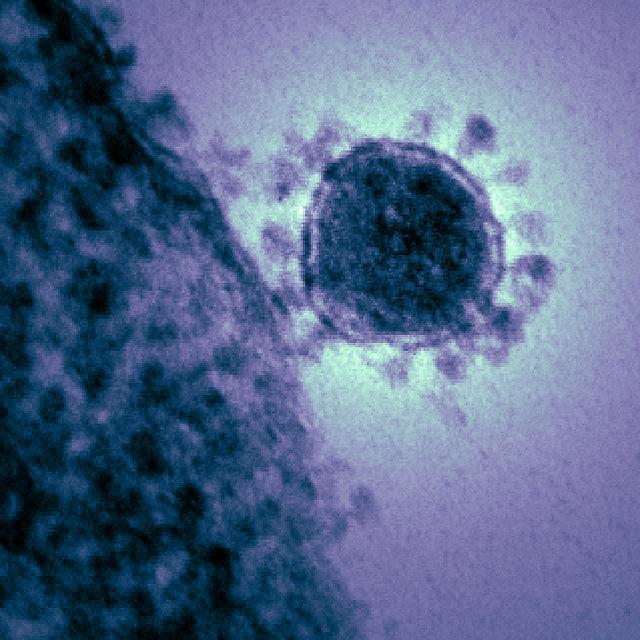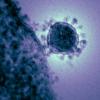News over the weekend of another MERS-CoV (Middle East respiratory syndrome coronavirus) case and two deaths in Saudi Arabia was followed today by the naming of 15 experts from nearly as many countries to serve on the World Health Organization's (WHO's) MERS-CoV emergency committee.
The WHO said yesterday that the latest Saudi case involves a 56-year-old female healthcare worker in Hafr Al-Batin, in the Northeastern region. She had contact with another MERS-CoV case-patient, who recovered.
The two patients who died were a 53-year-old "citizen" from the Eastern region and a 2-year-old boy, the WHO said.
The Saudi Ministry of Health (MOH) noted the two deaths in a typically brief statement a day earlier, on Jul 6. That statement reported the case in the 56-year-old woman and two other cases that had been announced first by the WHO on Jul 5. Those involved two men, aged 66 and 69, from Riyadh.
The additional illness and deaths raised the WHO's MERS-CoV count to 80 cases and 44 deaths. Of those, 65 cases and 38 deaths have occurred in Saudi Arabia, according to the MOH.
Committee members named
In naming the members of the new MERS-CoV emergency committee, the WHO followed up its Jul 5 announcement of the panel's formation. The group, officially called the International Health Regulations (2005) Emergency Committee concerning Middle East Respiratory Syndrome Coronavirus (MERS-CoV), will advise the WHO on how to respond if the virus starts spreading more widely.
The committee is scheduled to hold its first teleconference tomorrow and a second one 2 days later, the WHO said last week. These first sessions will mainly involving backgrounding the members about MERS-CoV developments to date.
The committee includes Ziad Memish, MD, Saudi Arabia's deputy minister for public health. The United Kingdom, another country that has had MERS cases, is represented by Maria Zambon, PhD, director of reference microbiology services for Public Health England. No other countries that have reported MERS cases have members on the panel.
Other members are:
- Tjandra Aditama, MD, of Indonesia's Ministry of Health in Jakarta
- Dr Salah T. Al Awaidy of the Oman Ministry of Health in Muscat
- Chris Baggoley, MD, of Australia's Department of Health and Ageing in Canberra
- Martin Cetron, MD, director of the Division of Global Migration and Quarantine at the US Centers for Disease Control and Prevention in Atlanta
- Claudia Gonzalez, psychologist and researcher at Universidad del Desarrollo in Santiago, Chile
- Paata Imnadze, MD, PhD, of the National Center for Disease Control and Public Health in Tibilisi, Georgia
- Fadzilah Kamaludin, MBBS, of Malaysia's Ministry of Health in Putrajaya
- Bjorn-Inge Larsen, MD, of the Ministry of Health and Care Services in Oslo, Norway
- Babacar Ndoye, MD, PhD, an infection control expert from Dakar, Senegal
- Mahmudur Rahman of the Ministry of Health and Family Welfare in Dhaka, Bangladesh
- Maha Talaat, MD, MPH, DPH, of US Naval Medical Research Unit No.3 in Cairo
- Theresa Tam, MBBS, of the Public Health Agency of Canada in Ottawa
- Oyewale Tomori, DVM, PhD, of Redeemer's University in Lagos, Nigeria
Animal samples to be tested
In other developments, US scientists may begin testing animal samples from Saudi Arabia this week, after succeeding in a difficult effort to get the samples into the United States, the Canadian Press reported today. The testing is part of ongoing effort to figure out the virus's animal origin.
A team headed by Ian Lipkin, PhD, director of the Center for Infection and Immunity at Columbia University's Mailman School of Public Health, collected specimens from hoofed animals during a trip to Saudi Arabia in April, the story said.
But because Saudi Arabia has foot-and-mouth disease (FMD), a highly contagious cattle disease, the samples could not readily be brought into the United States, Lipkin said. Through deliberations that went all the way to the White House, however, he was able to circumvent the problem.
The samples will be tested at the US Department of Agriculture's (USDA's) Plum Island Animal Disease Center, off Long Island.
If the USDA lab finds the samples to be free of FMD virus, they will be released to Lipkin's lab, which will test them for evidence of MERS-CoV, similar viruses, or antibodies to the virus, according to the story.
Lipkin also reported that a bat sample that was collected in Saudi Arabia last October contained a trace of virus that looked like MERS-CoV. But the sample arrived in poor condition, leaving too little material to justify confidence in the finding, he reported. The virus is related to coronaviruses found in bats.
The story also said Lipkin's lab has been testing blood samples from more than 200 Saudi Arabians, including MERS case-patients and contacts of patients. The tests for MERS-CoV antibodies may eventually shed light on whether there have been many mild or asymptomatic cases that have remained invisible.
Cross-reactive antibodies
In other news, a research team from the University of Hong Kong said antibodies to the SARS (severe acute respiratory syndrome) coronavirus may cross-react with other betacoronaviruses, including MERS-CoV. The team said this finding could complicate efforts to identify people carrying antibodies indicating past exposure to MERS-CoV.
Writing in the Journal of Infection, the researchers said they tested archived serum samples from 94 workers at wildlife markets, 28 SARS patients, and 152 healthy blood donors. Immunofluorescence screening suggested that 17 of 28 SARS patients had significant MERS-CoV antibody titers, and 7 of 28 had low levels of neutralizing antibodies.
See also:
Jul 7 WHO update
Jul 6 Saudi MOH statement
Saudi MERS site with case count
WHO list of emergency committee members
Jul 7 Canadian Press story
J Infection study


















